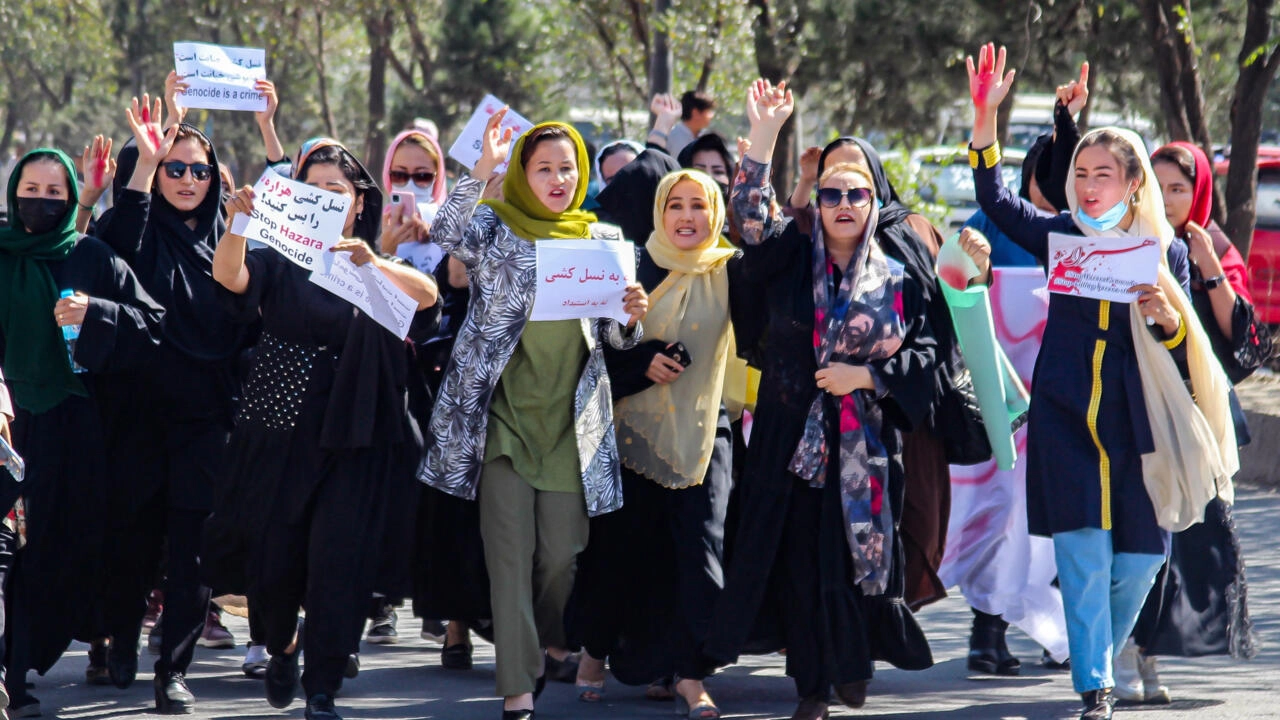“Parvin, ti turbano i tumulti che accomunano in questi giorni i tuoi paesi d’origine, l’Afghanistan e l’Iran?”.
“Mi turbava di più il silenzio. … ”.
Occuparsi di etnografia di marginalità senza voce, per trovarsi poi a fare etnografia delle rivolte e dei movimenti sociali, può avvenire senza soluzione di continuità e forse senza nemmeno rendersene conto.
Può avvenire! Lo dico con sollievo, oltre che con preoccupazione (per le manifestanti).
Avreste detto un anno fa che oggi le ragazze afghane sarebbero ancora scese in piazza protestando contro il regime? Io assolutamente no. Eppure un movimento importante sta animando le piazze e le università, innescando manifestazioni che vengono represse con la violenza, in Iran come in Afghanistan.
Le ragazze escono allo scoperto, protestano come nemmeno durante l’onda verde avevano fatto. Le accomuna lo slogan “Non abbiamo paura”, che squarcia un VELO. Un velo fisico in Iran e immateriale in Afghanistan.
Anziché scemare, fermentano slogan e proteste che squarciano tabù, regole sociali, patriarcato e SILENZIO. Quel silenzio che Parvin teme più della repressione violenta.
Prima ancora che per la libertà, le giovani scendono in piazza per rivendicare il diritto alla VITA. La vita loro e delle compagne uccise da un regime misogino: Mahsa, Nika, Hadis, come Marzieh, HAJAR e le 40 giovani studentesse hazara uccise a Kabul in una scuola.
Coesione. Le donne afghane urlano slogan per le donne iraniane, gli uomini in Iran supportano la protesta e diverse etnie scendono al fianco delle ragazze hazara in Afghanistan, con lo slogan, “Sono un hazara pashtun. Rivendico il sangue dei miei connazionali”.
Parvin, hazara cresciuta in Iran prosegue:
“Mi turbava di più il silenzio. Il silenzio nostro e del mondo, che proteggeva come un velo il nostro dolore. Ora che abbiamo squarciato il velo, non lasciateci sole.”




Una risposta
Afghan and Iranian women are aware of their rights and they won’t be silent anymore. They fight for their rights, education and freedom.
My answer to your question would be YES.
I was among Afghan girls. We believed and still believe that we only have one life to live not to be alive only. Being in the class room, talking about our favorite authors and authoresses and being active in society gave us the feeling that we were living our lives, but when taliban came we were only alive.
Today Afghan women do not come to street and protest only for education or innocent Hazara students that were killed, they are also fighting for their progress and development in past 20 years which taliban cannot take it from us.
What they do at this moment reminds me of a part of Let me breath, a book from Aziz Ruesh. When Marefat school was under attack and it was destroyed. the next day despite all heart_rending events and threats a considerable number of students came back to school to renovate it and restart the class without fear. At that moment he recalled in his book that he was indeed happy.
Just like Che Guevara says “ They tried to burn us but they didn’t know we were seeds.”
For all Kaj girls, Fare_seekers of Jonbesh_Roshanaee, Moude_students, Saied_Shohada students, Mahsas, Nikas, Hadis and many anonymous heroes and heroines we stand together and FIGHT.
Silence is betrayal, so we want the world to stand by us and speak up.
Thank you to be our voice and help us.
Parvin